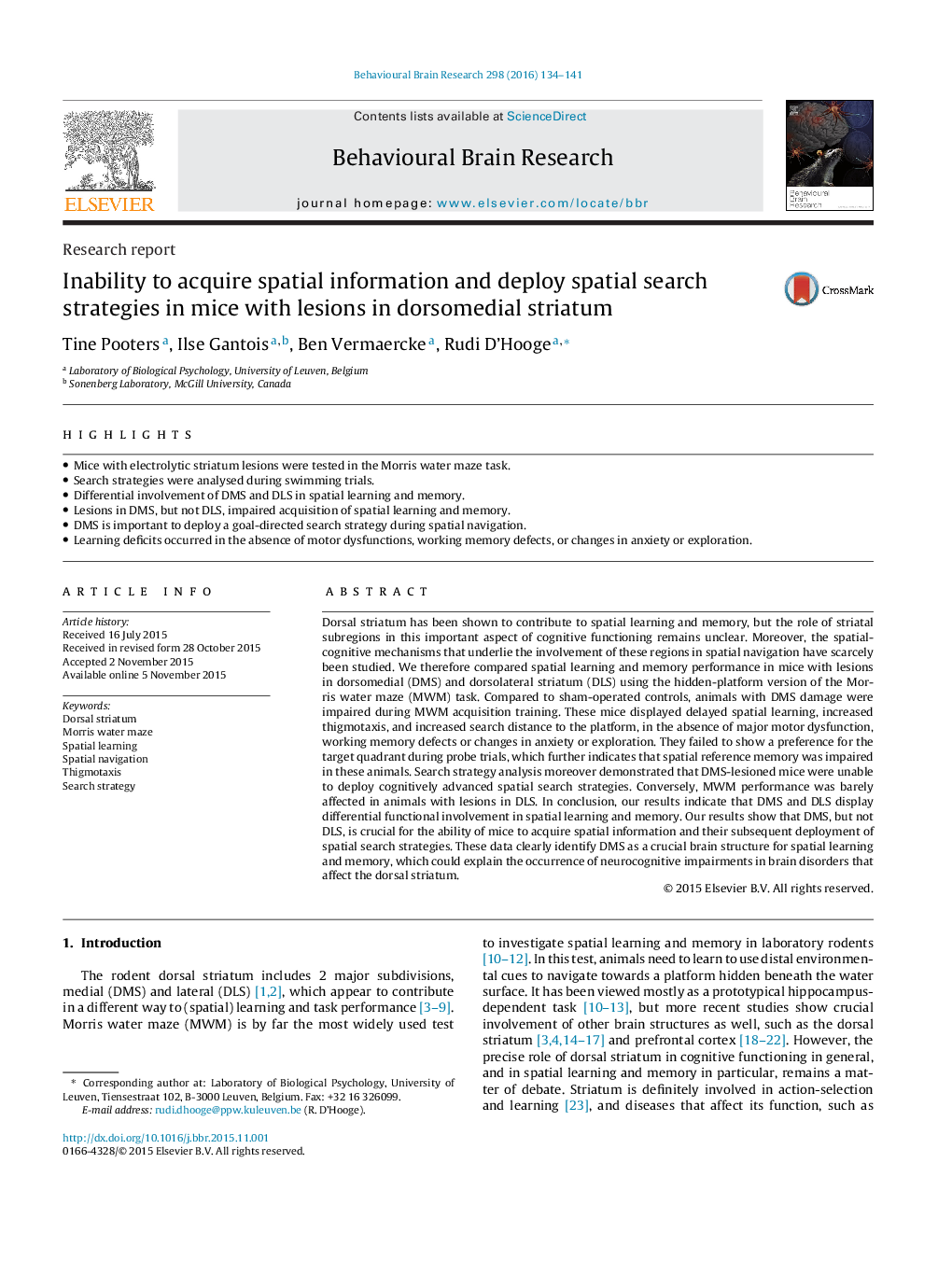| کد مقاله | کد نشریه | سال انتشار | مقاله انگلیسی | نسخه تمام متن |
|---|---|---|---|---|
| 6256277 | 1289914 | 2016 | 8 صفحه PDF | دانلود رایگان |

- Mice with electrolytic striatum lesions were tested in the Morris water maze task.
- Search strategies were analysed during swimming trials.
- Differential involvement of DMS and DLS in spatial learning and memory.
- Lesions in DMS, but not DLS, impaired acquisition of spatial learning and memory.
- DMS is important to deploy a goal-directed search strategy during spatial navigation.
- Learning deficits occurred in the absence of motor dysfunctions, working memory defects, or changes in anxiety or exploration.
Dorsal striatum has been shown to contribute to spatial learning and memory, but the role of striatal subregions in this important aspect of cognitive functioning remains unclear. Moreover, the spatial-cognitive mechanisms that underlie the involvement of these regions in spatial navigation have scarcely been studied. We therefore compared spatial learning and memory performance in mice with lesions in dorsomedial (DMS) and dorsolateral striatum (DLS) using the hidden-platform version of the Morris water maze (MWM) task. Compared to sham-operated controls, animals with DMS damage were impaired during MWM acquisition training. These mice displayed delayed spatial learning, increased thigmotaxis, and increased search distance to the platform, in the absence of major motor dysfunction, working memory defects or changes in anxiety or exploration. They failed to show a preference for the target quadrant during probe trials, which further indicates that spatial reference memory was impaired in these animals. Search strategy analysis moreover demonstrated that DMS-lesioned mice were unable to deploy cognitively advanced spatial search strategies. Conversely, MWM performance was barely affected in animals with lesions in DLS. In conclusion, our results indicate that DMS and DLS display differential functional involvement in spatial learning and memory. Our results show that DMS, but not DLS, is crucial for the ability of mice to acquire spatial information and their subsequent deployment of spatial search strategies. These data clearly identify DMS as a crucial brain structure for spatial learning and memory, which could explain the occurrence of neurocognitive impairments in brain disorders that affect the dorsal striatum.
Journal: Behavioural Brain Research - Volume 298, Part B, 1 February 2016, Pages 134-141